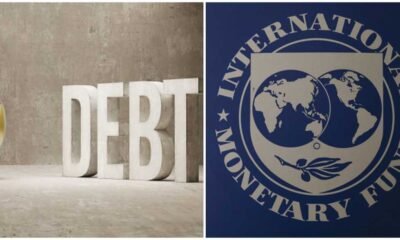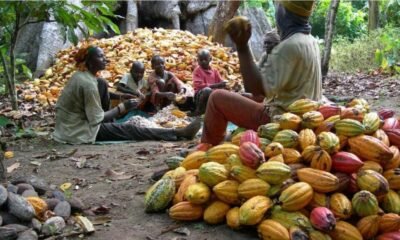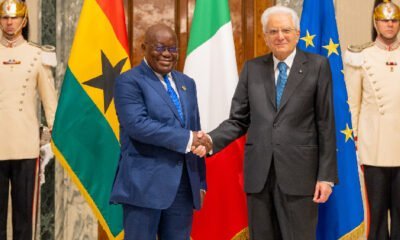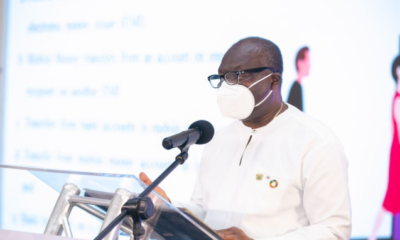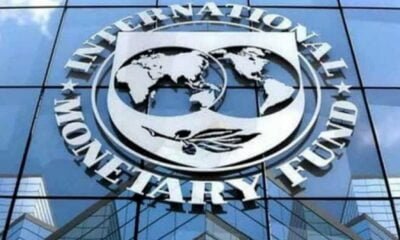News
IMF Approves Ghana’s $360 Million Loan, Commends Economic Progress
Published
1 year agoon
By
M N Ridwan
On December 2, 2024, the Executive Board of the International Monetary Fund (IMF) approved a disbursement of $360 million for Ghana as part of its ongoing three-year Extended Credit Facility (ECF) arrangement.
This latest installment marks the fourth tranche of the loan, bringing total disbursements to approximately $1.9 billion since the agreement was first signed in May 2023.
In a statement following the approval, the IMF highlighted that Ghana had made significant progress with key structural reforms, despite facing some delays.
The country successfully met all the performance criteria and indicative targets set for this review period.
However, the IMF urged the Ghanaian government to stay committed to its reform agenda, particularly in the lead-up to the December 7 general elections, as it remains crucial for the country to achieve macroeconomic stability and debt sustainability.
Bo Li, the IMF’s Deputy Managing Director, emphasized that Ghana’s economic strategy was yielding positive results, with clear signs of stabilization in the economy.
He stressed that continued and consistent implementation of policies is necessary to restore long-term stability and reduce the country’s fiscal vulnerabilities.
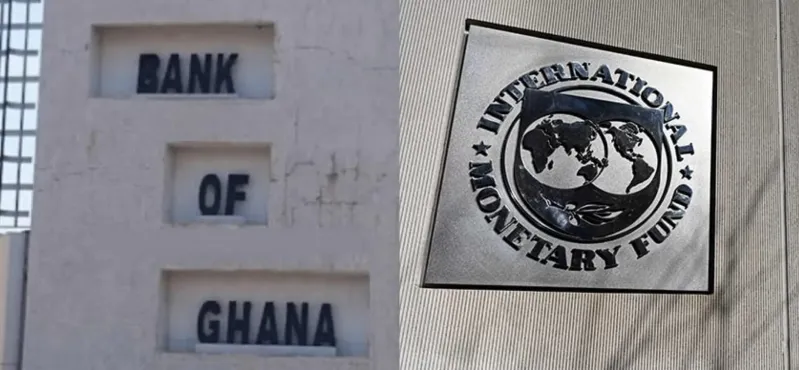
To ensure continued progress, the IMF called for strengthened domestic revenue mobilization and better management of public expenditures.
The Fund also urged the government to enhance fiscal responsibility, particularly with regard to State-Owned Enterprises (SOEs) management and public debt restructuring.
On the energy sector, which has faced recent challenges, the IMF recommended immediate and forceful action to mitigate any risks to the country’s fiscal health.
Furthermore, it was noted that Ghana should complete its comprehensive debt restructuring, following the successful Eurobond exchange earlier this year, to improve debt sustainability.
The Bank of Ghana was also advised to maintain a tight monetary policy stance to curb inflationary pressures and strengthen the country’s currency.
As Ghana moves forward, the IMF remains optimistic about the country’s economic recovery, provided that the government remains dedicated to its reform efforts and policy implementation.
Related News
You may like


Ghana Becomes Second-Most Indebted African Nation to IMF Amid Economic Crisis


Weak Cocoa Harvest and Inflation Risks Could Derail Ghana’s Economic Outlook, IMF Warns


Cultivating Friendship: Ghana and Italy Strengthen Ties for Prosperity


Ghana’s Economy Will Soon Bounce Back – Akufo-Addo Assures Ghanaians


Kwabena Agyepong Advises Ken Ofori-Atta To Resign Over IMF U-Turn


4 Key Findings By IMF On Ghana’s Economy After Preliminary Findings

